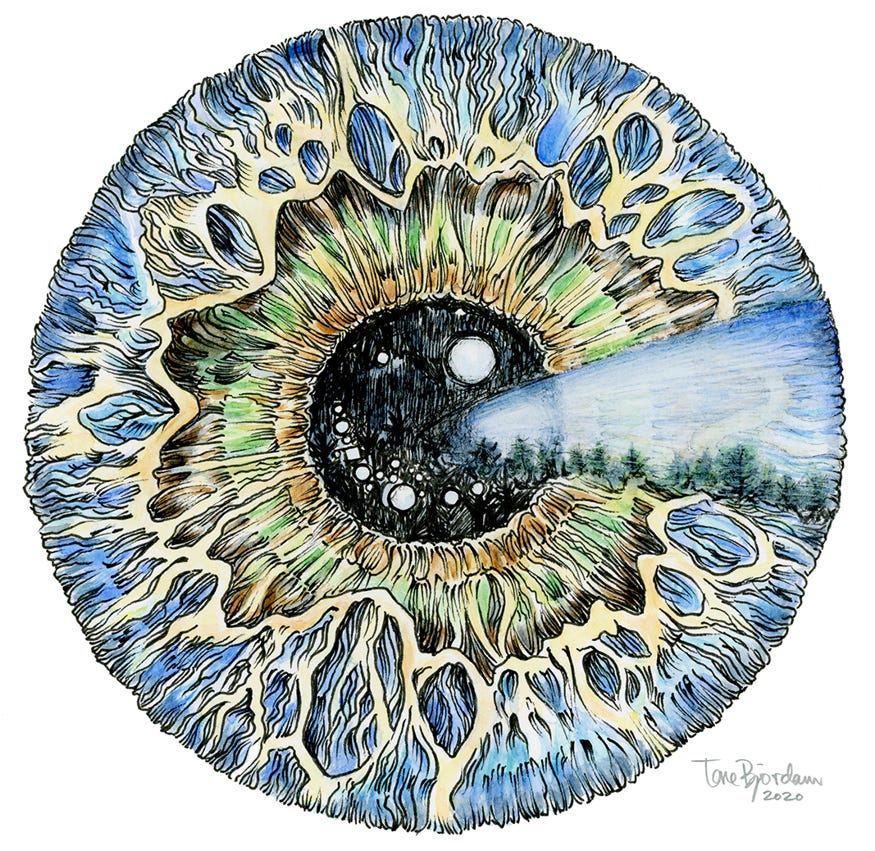Why Quantum Social Change?
Welcome to my Quantum Social Change newsletter. Let's explore how to make a quantum leap to an equitable and thriving world!
The cringe. The eyeroll. The headshake. In 2016, a well-known scholar pleaded for me not to use quantum and social in the same sentence. Too late. The connection had been made.
My “quantum leap” paper had just been published in WIREs Climate Change. The paper starts with a quote from Lemn Sissay’s powerful poem, What if?:
A lost number in the equation. A simple, understandable miscalculation. And what if, on the basis of that, the world as we know it changed its matter of fact? Let me get it right: What if we got it wrong?
Good question. There is little doubt that future generations will look back upon this time and wonder how we could have gotten things so wrong: “What were they thinking? Why didn’t they do something? Couldn’t they see that they mattered?”
As a matter of fact, we have already changed our matter of fact, including our understanding of matter. For over a century now, quantum physicists have been discovering that reality is not what it seems. Entanglement, non-locality, wave-particle duality, and superpositions are just some of the words used to describe quantum phenomena. In recent decades, research from the social sciences and humanities has used quantum metaphors, methods, and meanings to address an important question: What if social reality is not what it seems?
I have been curious about how quantum physics relates to self and society since reading Danah Zohar’s books in the early 2000s, and I have followed Alexander Wendt’s work on quantum social theory for over a decade. I’ve been intrigued by Karen Barad’s work on agential realism and inspired by Laura Zanotti’s research on quantum approaches to agency, ethics, and international relations. I’m also fascinated by the ways that Karin Fierke links quantum concepts with Eastern philosophies and emphasizes the role of language and entanglement in international politics.
There are many other books, articles, podcasts, and resources that look at relationships between quantum physics, our perception of reality, and our shared social world. For example, Daniel Siegel’s book Intraconnected explores the relationship between me and we, or Mwe, with reference to quantum physics and Indigenous wisdom and traditions. The idea and experience of intraconnection, he says, expresses “a sense of wholeness experienced from within.”
What does this all mean for climate change and the transformations needed to respond wisely and in time? It has been said that if you want the right answers, you have to ask the right questions. So I asked ChatGPT if quantum social change is a concept.
ChatGPT informed me that "‘Quantum social change’ is not a widely recognized concept in the fields of quantum mechanics or social sciences as of my last update in January 2022. However, it's possible that someone may have coined this term to describe a novel approach to understanding social change, perhaps drawing an analogy between quantum principles and societal transformations.”
It did speculate about the meaning, suggesting that quantum social change can occur in sudden, unpredictable ways, or that like particles, societal transformations are non-linear, discontinuous, and influenced by a multitude of factors.
Admitting that it’s difficult to provide a definitive explanation of what "quantum social change" might entail, ChatGPT suggested I look for more information: “It’s always advisable to seek clarification from the source using the term to better understand their intended meaning.”
That’s why I’m writing this newsletter. In You Matter More than You Think: Quantum Social Change for a Thriving World, I wrote that quantum social change describes
a conscious, nonlinear, and non-local approach to transformations that is grounded in our inherent oneness. It recognizes that we are entangled through language, meaning, and shared contexts, and that our deepest values and intentions are potential sources of individual change, collective change, and systems change. This recognition, when expressed through a particular quality of agency, can shift systems and cultures in a manner that is both equitable and sustainable.
What does mattering in the moment mean to you, me, and all of us? Would changing our approach to social change make a difference?
I don’t have the answer, but I think it is essential to ask the question. In this newsletter, I will explore what quantum social change means in theory and practice, and I’ll reflect on how we can engage differently with transformations to generate equitable and sustainable results, here and now. I will look at the metaphors, methodologies, and meanings that quantum physics offers and its implications for how we act, individually and collectively. This includes reflections on the relationship between mind, meaning, and matter.
I want to connect with people who are working with perspectives, approaches, theories, projects, ideas, and initiatives that contribute to quantum social change. Those of you who are enthusiastic annual supporters will be invited to participate in conversations that matter through monthly webinars with invited guests.
The aim of this initiative is to generate a qualitative shift in the ways that we engage with social change for an equitable and thriving world. I want to support an entangled “you matter” movement that inspires people to show up fully based on what they deeply care about, for themselves and for everyone. If you are interested in being part of this movement, please sign up for my newsletter and share with friends!
If you want to know more about quantum social change, here is a link to the Introduction of my Audio book, You Matter More Than You Think:
“The marvelous thing about a good question is that it shapes our identity as much by the asking as it does by the answering.” – David Whyte




